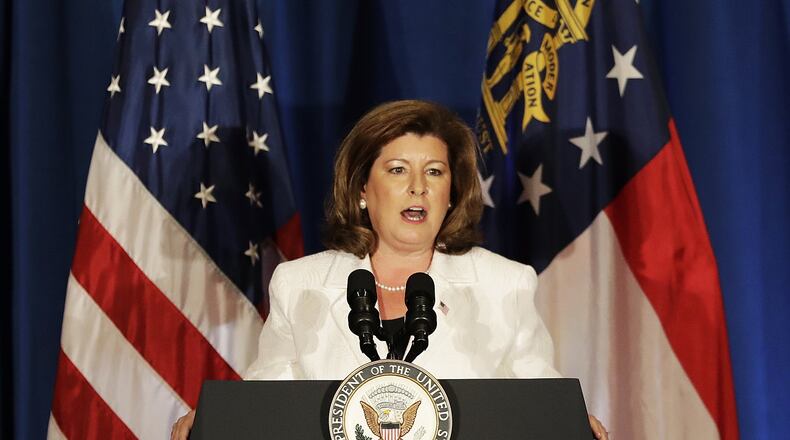In the campaign for Georgia's 6th, Congressional District, Republican Karen Handel has been sharply critical of the 2015 agreement for Iran to scale back its nuclear program in exchange for relief from economic sanctions.
“From the things that I have seen, they are and (have) already violated the terms of the deal,” Handel said in a June 8 debate against Democrat Jon Ossoff ahead of the June 20 vote.
The deal’s finer details get very technical very quickly, with dozens of limitations placed on Iran’s nuclear-related activities. But the major points concern Iran giving up materials it could use to quickly build a nuclear weapon.
The prevailing view among foremost authorities is that Iran has complied.
The International Atomic Energy Agency, the UN's nuclear watchdog, has primary monitoring responsibility, and it has repeatedly found Iran to be in compliance with the terms of the agreement.
The U.S. State Department, which is required to report to Congress every 90 days on Iran's compliance, also certified in April that the Islamic Republic is living up to its end of the deal.
Iran’s record does have blemishes. The Handel campaign zeroed in on those.
Handel's campaign aide pointed us to news reports and congressional testimony that highlighted two infractions Iran committed. The deal says Iran can keep 130 metric tons of "heavy water," a modified liquid used in some nuclear reactors. Iran has twice crept over its limit, according to the IAEA, each time by a fraction of one ton.
These breaches formed the core basis of Handel’s claim that Iran violated the nuclear deal. Some experts we spoke to said Iran has tried to create wiggle room by interpreting parts of the agreement to favor its own interests. But the consensus is that saying Iran has violated the deal overstates the case.
Daryl Kimball, the executive director of Arms Control Association, downplayed the heavy water issue as a “minor infraction,” and noted Iran does not have a functioning heavy water reactor. So, from a practical standpoint the issue is essentially moot because excessive heavy water wouldn’t move Iran closer to building a nuclear weapon.
Several experts also noted Iran quickly rectified its breach to come back into compliance.
Handel's campaign pointed us to congressional testimony by David Albright, president of the Institute for Science and International Security, who warned lawmakers in February about Iran exceeding its heavy water cap. But Albright wrote in a June 5 analysis of the IAEA's latest Iran report, "Iran appears to be complying more strictly with … limitations over which it was facing controversy, such as the heavy water cap."
Several experts said that under any technical agreement there are bound to be minor implementation issues.
Richard Nephew, senior research scholar on global energy policy at Columbia University, said allegations of cheating are best reserved for clear-cut, consequential breaches, should they arise.
“I don’t agree with Ms. Handel’s assertion,” he said, “and think that it is overstated.”
Our ruling
The IAEA, the foremost authority on the matter, has repeatedly deemed Iran in compliance with the deal. The State Department has also certified the Islamic Republic is holding up its end of the bargain, and a host of experts affirmed these findings.
The IAEA did report two instances where Iran barely and briefly exceeded its supply of a nuclear reactor component known as “heavy water.” But experts said this minor breach posed no practical risk of moving Iran closer to developing a nuclear weapon, and said such infractions should not be interpreted to mean Iran has not complied with terms of the deal.
We rate Handel’s statement Mostly False.
Says Iran has “violated the terms of the (nuclear) deal.”
— Karen Handel on Thursday, June 8th, 2017 in a debate
About the Author
Keep Reading
The Latest
Featured



